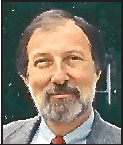It is Wednesday, Dec. 8, 2021, and I’m in Port Royal. It’s early and I’m looking-out at a pile of newly-split wood that now resides in our backyard.
Last weekend Dean Moss and I rented a log-splitting machine; then fed it with the remnants from two oak trees neatly, quickly twisted and removed (halfway up) by a tornado that visited my yard for about 60 seconds.
For reasons that remain murky, I found that I enjoyed the process of splitting these logs. There is something mesmerizing about watching a blade pass through an eight inch wide log like it was a stick of Land O’Lakes unsalted butter.
Today’s Beaufort Gazette gives us more Murdaugh; more Hampton County and the ever-expanding legion of lawyers playing-out their roles in that Shakespearean tragedy. It is clear that Murdaugh is selling The State and local newspapers in the same way that Donald Trump bolstered the finances of the Washington Post, New York Times and Wall Street Journal. It is also clear the legal profession is taking a beating in the process.
I can’t really say what, exactly, sent me into the legal profession but I remember enough to know that making money was not a factor. I had grown up the son of an Army officer; a man interested in infection and skin-grafting; largely indifferent to making money.
When I was a boy I knew there had been a Depression, that many people had lost their savings and their jobs. But that was history — ancient and sepia-tinted history. My reality was Thanksgiving Dinner at a hospital cafeteria; inexpensive groceries at the commissary; subsidized housing and medical care that was entirely free.
I grew up thinking that most of my friends were pretty much like me — indifferent to the costs of housing, hi-test gasoline (10 cents in Germany) and 25-cent cheeseburgers at the officer’s club.
By the time I graduated from George Washington Law School, I knew that lawyers could make a very good living in private practice. But most of my friends were staying in Washington and looking for jobs at the Federal Trade Commission or the Department of Justice. It seemed to me that most of the people I knew were looking to do good and, in those long gone days, the EPA, FDA and the EEOC were places a lawyer could influence public policy in a positive way.
I decided that I would not stay in Washington, or work for a Federal agency. Rather, I would come home to South Carolina and try to do good on the local level and in private practice.
At my first job interview, the senior partner took out a graph showing me in bold, precise numbers what my employment would cost the law firm.
“You can see from the numbers, Graber, that you will cost this firm at least $50,000 in your first two years; we should break even the third year; and if we’re lucky, start making money in the 4th year …”
Another firm featured a monthly, mandatory-attendance meeting where all the firm’s lawyers, amid coffee and almond encrusted croissants, compared monthly earnings. Those lawyers announcing big verdicts earning respect, standing, stature.
These same monthly meetings in my own firm were a learning experience for me. More often than not, they were a humiliation. I sat through those meetings wondering if I had made a mistake — a huge mistake in choosing this profession. But before I could adjust my thinking I was fired. Stunned by this experience I staggered over to Penn Center, a non-profit that cared little about making money.
Several years later, I formed my own law firm with three other lawyers and learned that staff salaries; mortgage payments; the cost of heat, telephones, computers, experts, continuing education and errors and omissions insurance made me focus on money-making whether I wanted to or not. It also meant a big verdict (or settlement) was a welcomed injection of cash insuring the continued existence of the firm.
Something else happened.
The smaller, less lucrative cases were pushed aside. We weren’t going to spend time quieting title or representing abused tenants because that meant too much work for too little return. We sought bigger clients — local governments and utilities — slowly losing our idealism, incrementally losing our souls.
Money has soured the legal profession — much like it has soured health care — yet we desperately cling to the notion they should remain largely private and mostly unregulated.
Scott Graber is a lawyer, novelist, veteran columnist and longtime resident of Port Royal. He can be reached at cscottgraber@gmail.com.







